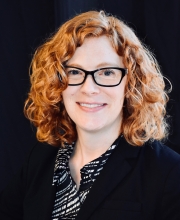| Rethinking the Creative Economy: The Diverse Economies of Artists and Artisans in Rural Massachusetts This dissertation explores the contours of artistic economic activity through participatory action research conducted with artists and artisans in the Greater Franklin County, Massachusetts. The creative economy has drawn significant attention over the past ten years as a principle economic sector that can stimulate the redevelopment of post-industrial cities. However, dominant creativity–based development strategies tend to cater to the tastes of an economically privileged, and implicitly white, “creative class,’ leading to gentrification and social exclusion based on race, ethnicity, class, and gender. These exclusions also apply to artists and artisans, occupational groups whose economic activity and needs have been paradoxically erased from dominant creativity-based development prescriptions.
The data were collected as part of a collaborative research project in which twenty-two artists and artisans were hired from the region to conduct interviews to explore the economic lives of their peers. These peer-interviews were embedded in a collaborative research process, which generated two data streams: one hundred and thirty-two peer-interviews conducted by the research team and the ethnographic data from the collaborative research process itself.
Through analyzing the peer-interview data, I find that regional artistic economic activity spans both the formal and informal economy and derives from a wide range of non-market logics. I argue that the multiple values of artists and artisans give rise to heterogeneous economic practices and logics, which fall outside the formal economy and are thus largely ignored in existing entrepreneurial initiatives to support the arts. Within the already precarious situations of professional artists, I also find that these conventional initiatives intensify vulnerability for artists from marginalized groups.
Through analyzing the ethnographic data from the research process, this dissertation also deepens understandings of community-based research methods. In particular, I extend the discussion of peer interviewing beyond how interviews are conducted to developing new ways to analyze the data produced by this method. I also illustrate the micro-political effects of conducting participatory action research on its subjects, arguing that this method offers an innovative model for transformative social change. |

